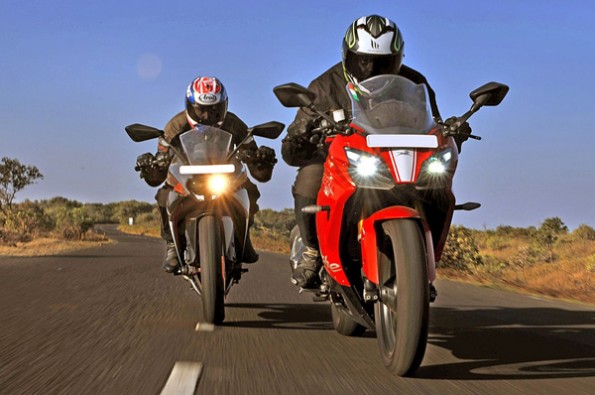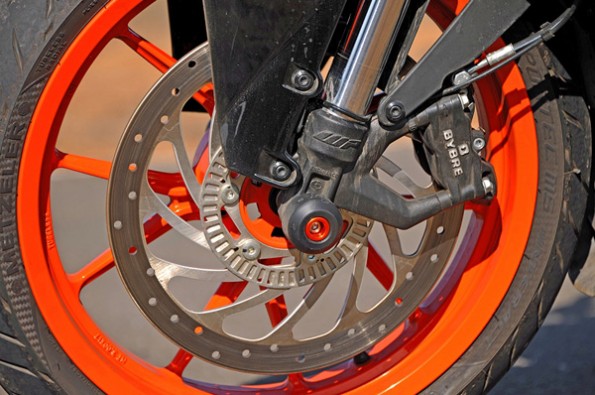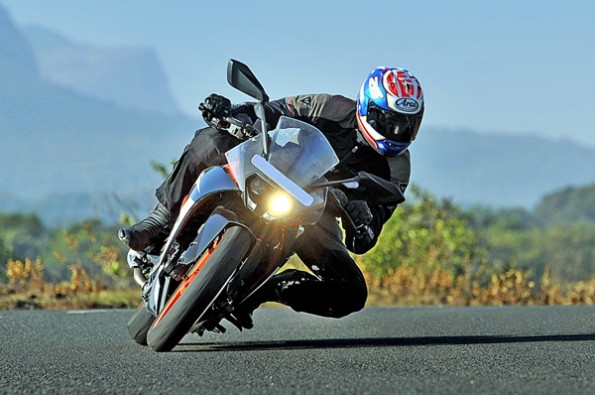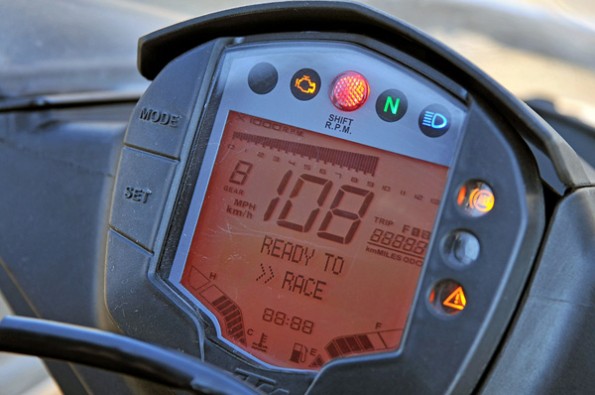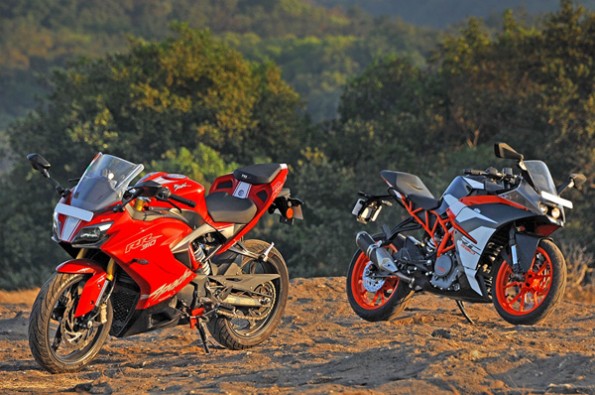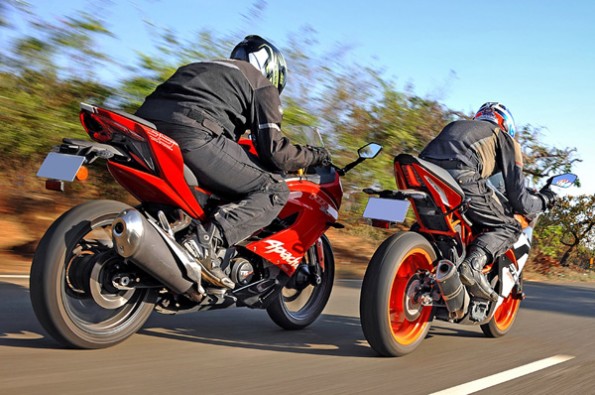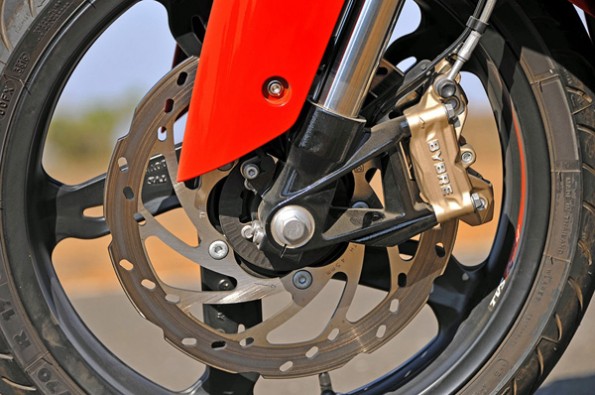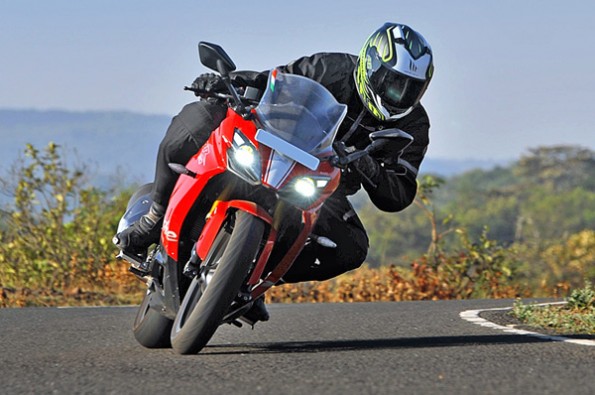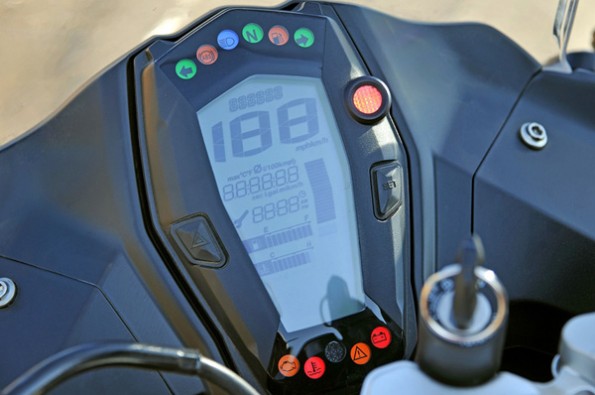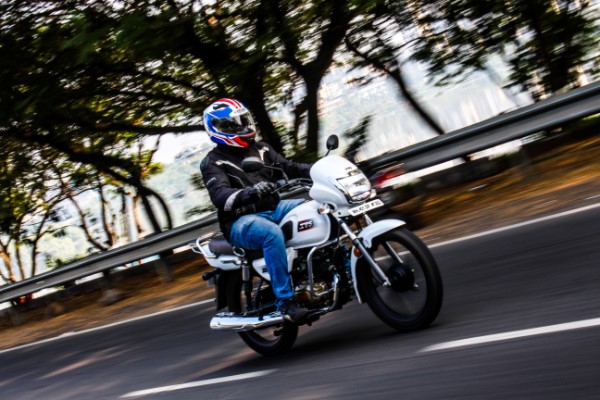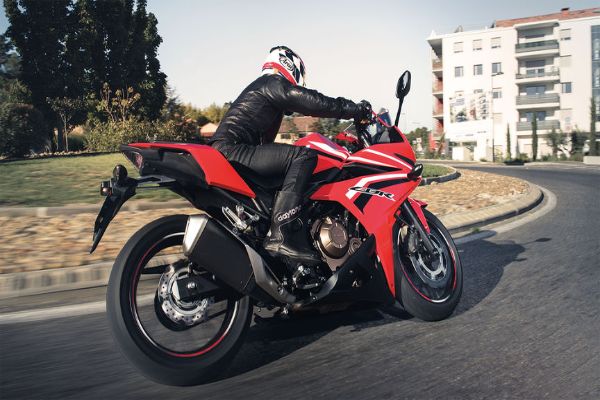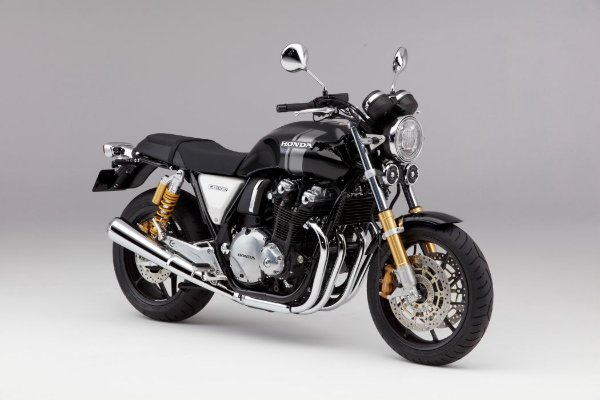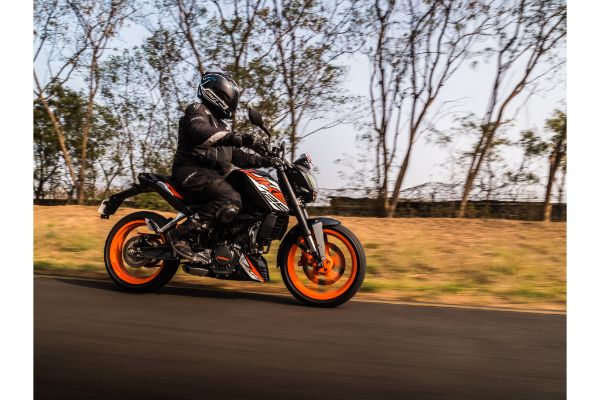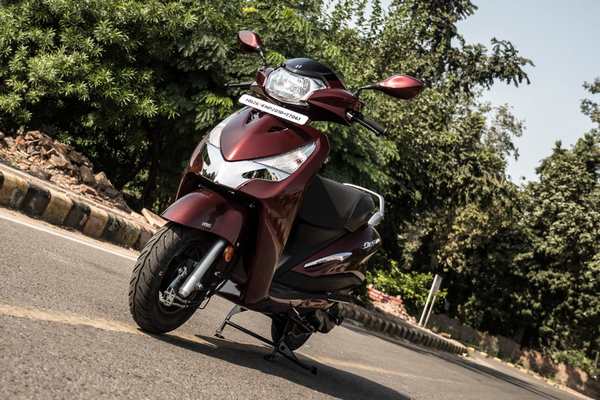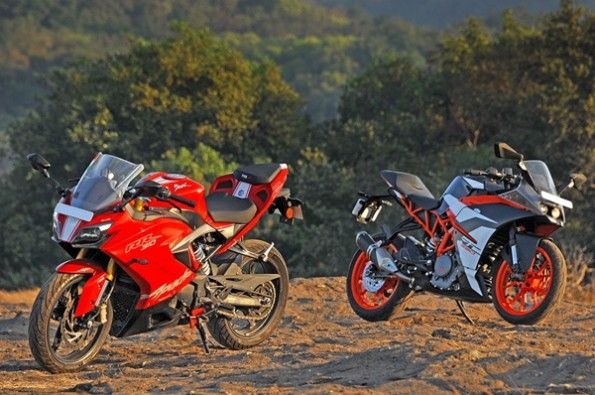
Back in 2014, after having launched the hyper 390 Duke, KTM felt the Indian enthusiast was ready to handle a really good (by international standards) entry-level supersport. This machine came with a lot of power and aggressive power delivery. The RC 390’s sharp looks and good performance led to good sales. For 2017, KTM gave the bike a larger front disc, ride-by-wire and a slightly better suspension. This meant the track-ready motorcycle only got better for the track however; very few of us live close to race-tracks in India.
The bike finally gets what looks to be a worthy competitor, in the form of the TVS Apache RR 310. The TVS has a smaller engine and makes lesser power figures but also has the lower price tag of the two. Here is how they compare.
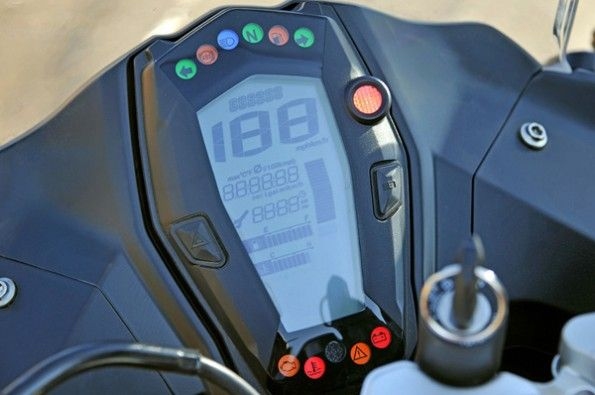
Which One has More Tech?
When we compared the feature list of the two motorcycles, we found the KTM to have more. It comes with a slipper clutch, ride-by-wire, better tyres and a bigger front disc. The RR 310 comes with less impressive tyres, a slightly smaller disc and ABS that cannot be disabled. The TVS gets a Bi-LED headlight, while the KTM gets projectors. Both bikes also share a lot in terms of tech, they both gets fully digital instrumentation, pre-load adjustable monoshock and clip-ons. In terms of execution, it’s the RR 310 that’s better; this could be because it’s a newer bike. The RC390 also has more wires and ugly welds which are visible. The triple-clamp on the RR 310 feels expensive and premium when compared to the basic black one on the RC. Visually, it’s the TVS that wins it, the traditional styling along with the big bike styling is appreciable.
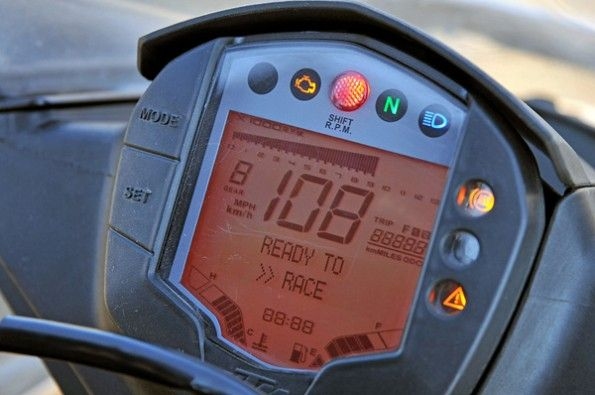
Which One has Better Ride Quality?
The KTM is not known to be comfortable; it has an aggressive riding position and puts you in an acute position which makes no sense unless being ridden hard. The RC also has the harder seat of the two, however the pillion seat is much plusher than the one on the RR 310. The 390 is also thinner in width and more compact, however it does decent room for you to move around. The seating on the Apache is considerably more upright than the RC, the seat is comfortable and feels nice after you switch bikes.
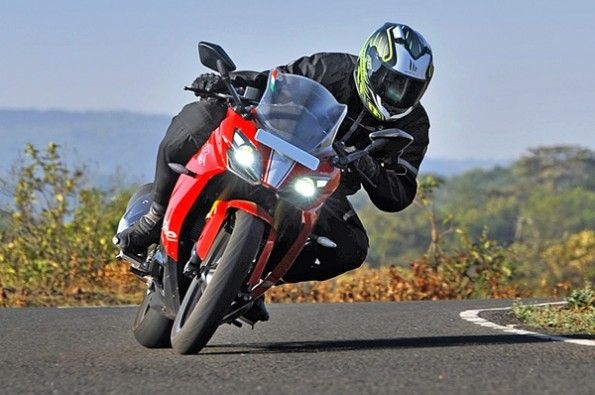
We rode the bikes in different settings, right from a highway run to congested city traffic ride. In almost every scenario, the RC proves to be the more difficult bike to ride. The RR is easier in almost every scenario on the road, and surprisingly proved good to ride on the track as well. You can sustain high speeds for a longer period of time without too much stress.
Which one has More Power?
The KTM is the one with more power; it has a 373cc, single-cylinder engine that makes 3.5hp and 36Nm of torque. It is an international segment leader in terms of performance. The RR 310, on the other hand, uses a 312cc, single-cylinder engine that makes 34hp and 27.3Nm. This is the same motor built in India and used in the BMW 310 models. Both engines use fuel-injection and come paired to six-speed transmissions.
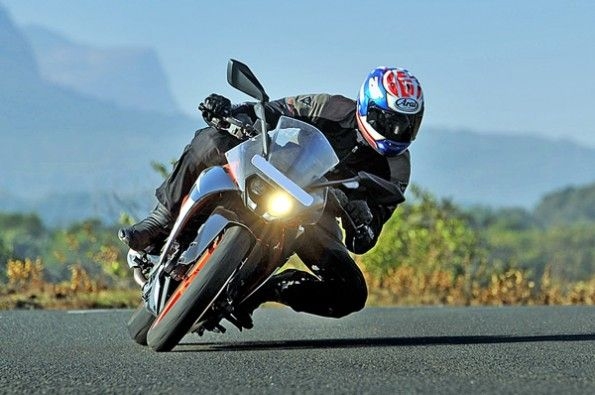
Obviously, the additional power makes the RC 390 the faster motorcycle; it does 0-60kph in 2.7 seconds and 0-100kph in 5.9. It delivers this power in an aggressive and relentless manner. However, even though the RR is 10hp down on the RC it does the 0-60kph in 2.9 seconds and does 100kph in 6.9 seconds, figures not too far off the KTM. Overall, it is the KTM that’s faster, but both offer decent amounts of excitement.
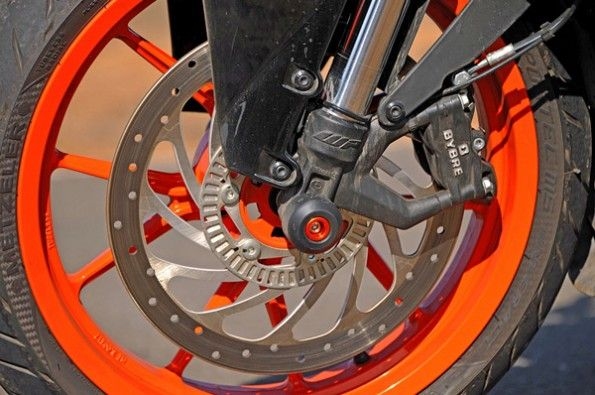
Which one Handles Better?
The compact proportions of the KTM make it dynamic and fun. However, the RC demands a decently skilled rider who is completely focused. In capable hands and a tight section of road, the RC can even keep up with much higher capacity bikes. Just like its handling, the brakes on the RC are sharp. The RR’s on the other hand are decent but do not offer the sharpness seen on the RC’s brakes.
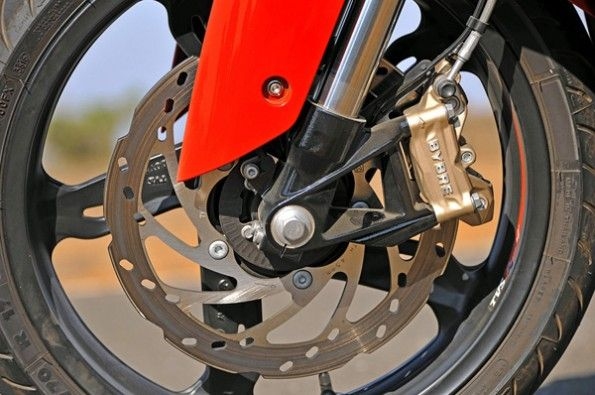
Overall, the RR 310 feels more relaxed. It helps you learn and will forgive your mistakes and teaches you. The longer wheelbase on the motorcycle also adds to its stability and it also takes mid-corner bumps well. The RC will do so too but will twitch a little. In conclusion, the RC 390 is angrier and a lot more exciting while the RR is tolerating and encouraging.
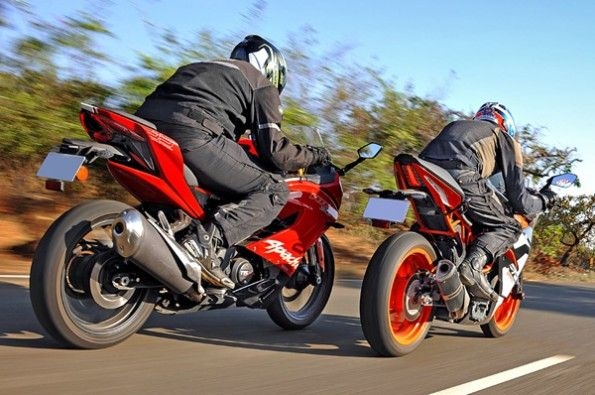
Which one should I Buy?
If you are an aspiring racer and live next to smooth mountain roads and do not plan to commute on your bike, the RC 390 is the bike or you. If you want a performance bike that can also double as a workhorse, the Apache RR 310 is the bike for you. The RC390 is priced at ₹2.35 lakh whereas the RR 310 is priced at ₹2.05 lakh (both prices, ex-showroom Mumbai).
In summary, it is the Apache RR 310 that is the winner since it offers good value and is easy to ride. The KTM is single minded and focused only around speeding, everything else comes second. The RR shines in many other ways and leaves a smile on your face.
